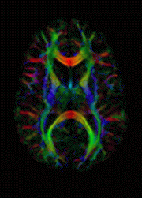
Photo from wikipedia
In this study, the conservation laws οf dissipative mechanical-diffusion-electrochemical reaction system are systematically obtained based on Noether's theorem. According to linear, irreversible thermodynamics, dissipative phenomena can be described by an… Click to show full abstract
In this study, the conservation laws οf dissipative mechanical-diffusion-electrochemical reaction system are systematically obtained based on Noether's theorem. According to linear, irreversible thermodynamics, dissipative phenomena can be described by an irreversible force and an irreversible flow. Additionally, the Lagrange function, L and the generalized Hamilton least-action principle are proposed to be used to obtain the conservation integrals. A group of these integrals, including the J-, M-, and L-integrals, can be then obtained using the classical Noether approach for dissipative processes. The relation between the J-integral and the energy release rate is illustrated. The path-independence of the J-integral is then proven. The J-integral, derived based on Noether's theorem, is a line integral, contrary to the propositions of existing published works that describe it both as a line and an area integral. Herein, we prove that the outcomes are identical, and identify the physical meaning of the area integral, a concept that was not explained previously. To show that the J-integral can dominate the distribution of the corresponding field quantities, an example of a partial, stress-diffusion coupling process is disscussed.
Journal Title: Journal of The Mechanics and Physics of Solids
Year Published: 2017
Link to full text (if available)
Share on Social Media: Sign Up to like & get
recommendations!